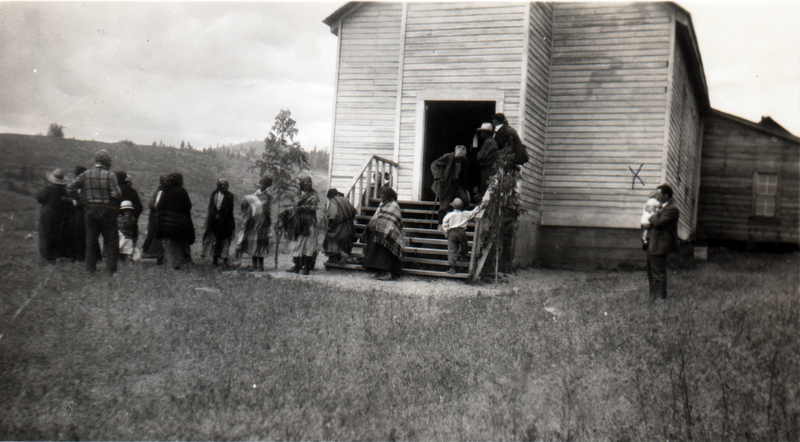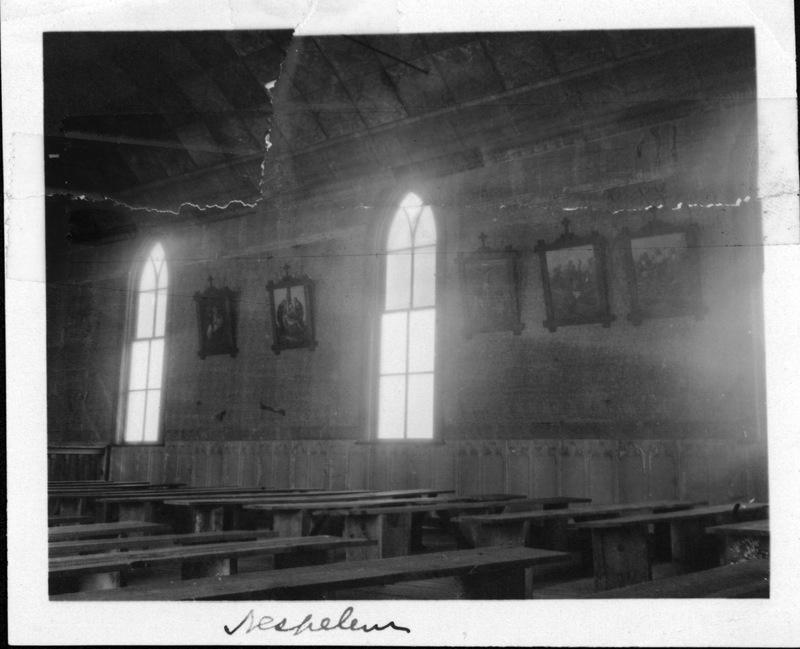Glimpse Into Common Religious Life in Nespelem
Fr. Griva made an impact whenever he was in Nespelem. He instructed the native people in traditional Catholic ceremonies and continued to work on translating their languages into prayers. Even though Fr. Griva was not always in Nespelem, a priest was, for the most part, in the Nespelem area to offer Catholic services to the people. When Fr. Griva was in Nespelem, the people came first. In order to accomadate for the people,he not only preached in English, but also in one of their native dialects. Fr. Griva understood the importance of the native people being able to understand English and wanted to make sure the full lengths of the religion was being understood. When the bishop visited Nespelem, Fr. Griva translated his words to the native people, thus making them a priority in terms of language.
Major ceremonies were always preached in one of the native dialects, mostly because these were important ceremonies in the church, such as Christmas, and many of the people would travel from far away for these ceremonies. The feast of Corpus Christi was a very important feast day and people would usually have major sacraments performed on this day, such as baptisms and marriages.
Sacraments were very important to the Catholic religion and Fr. Griva wanted to make sure the native people were able to recieve the sacraments they had earned. Baptisms, Confessions, First Holy Communions and Marriages were milestones that were celebrated and encouraged by the priests who resided over the mission at Nespelem.


